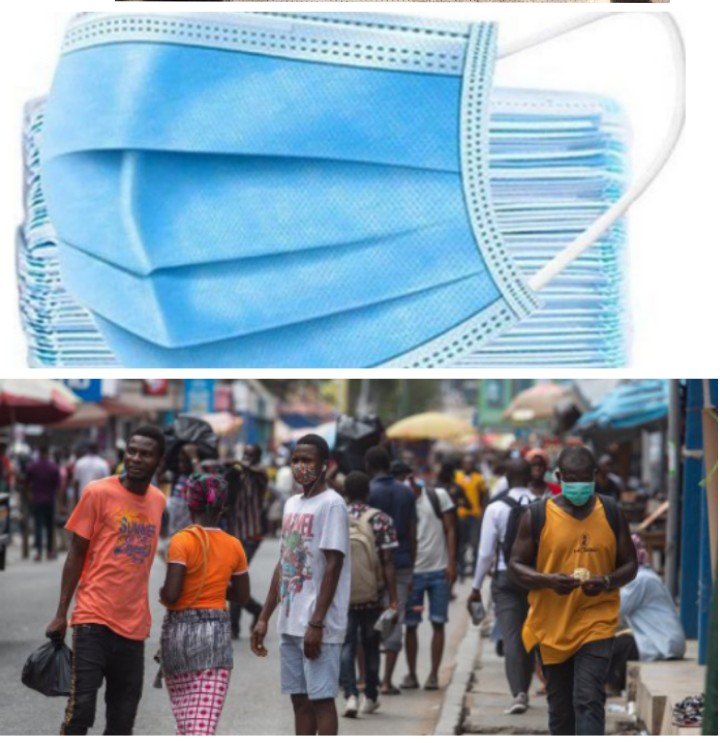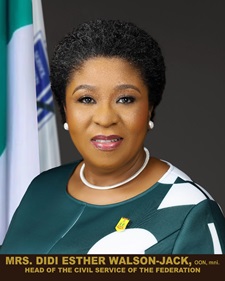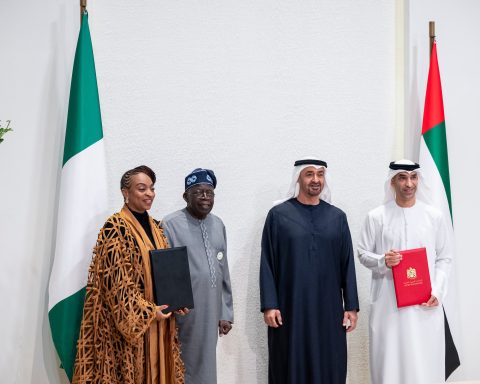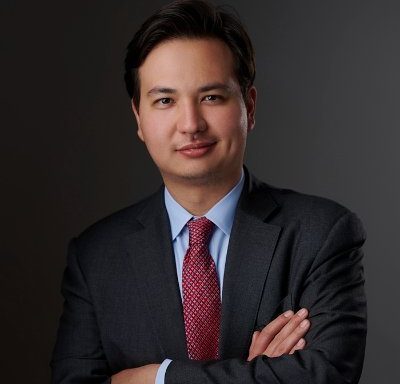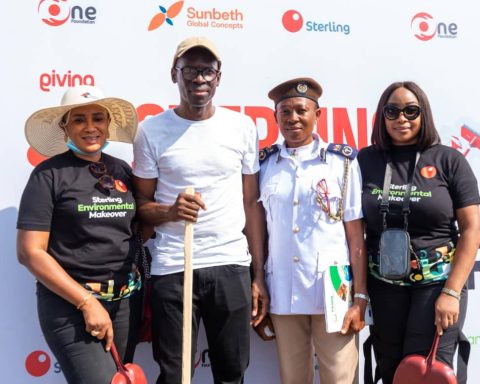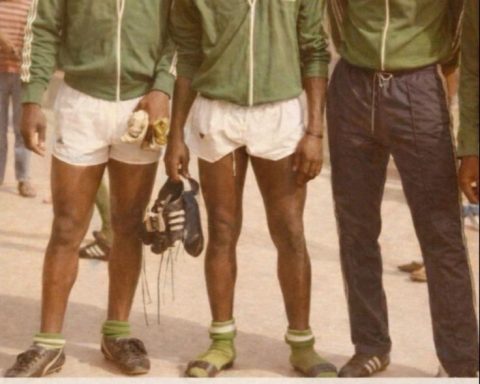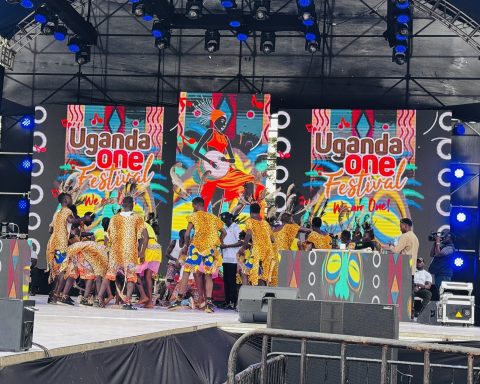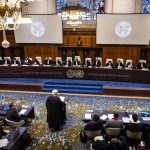FOR as low as N50 or a 100 bucks, you can buy a simple nose mask on the streets of Lagos; but how much protection does it really offer you against COVID-19 or the OMICRON virus?
Worried by the rising number of cases and the uncertainty surrounding the integrity of medical nose masks available to Nigerians for use in public places, hospitals and other health facilities, Prime Business Africa’s investigation team visited Lagos markets to ascertain the quality of the products.
Please Watch
Join our WhatsApp ChannelThis comes as the dreaded COVID-19 virus and its OMICRON variant continue to ravage world’s public health systems, mutating and generating more lethal variants and creating the urgent need for governments to step up preventive measures. The preventive measures are more urgent in developing countries like Nigeria and the rest of Africa, where poor healthcare system management were a persistent subject of concern even before the pandemic hit home in early 2020.
The Director-General of the Nigeria Centre for Disease Control (NCDC), Ifedayo Adetifa, recently stated that the country is currently witnessing the fourth wave of the COVID-19 pandemic, due to increase in number of confirmed cases in the past couple of weeks, caused by the Delta and Omicron variants of the virus.
Indeed, COVID-19 has already killed more than five million people in almost 200 countries.
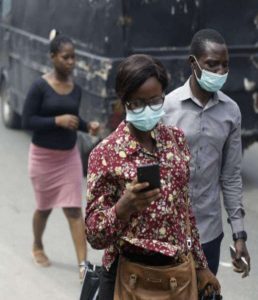
Nigeria remains the eight highest African country in terms of registered COVID-19 cases. As of January 24, 2022, the amount of positive coronavirus tests in Nigeria reached 252,428 in total, with about 3,100 deaths and 227,000 recoveries.
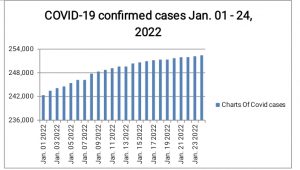
Although vaccines can help, they have also proven not to offer a complete remedy to weather the storm. This underpins the very essence of non-medical containment measures.
The World Health Organisation (WHO) outlined standard guidelines for preventing the spread of the virus to include physical distancing, wearing of nose masks, regular hand washing, good Personal and environmental hygiene and vaccination. The WHO Director General, Tedros Adhanom, said vaccines alone cannot help any country to effectively contain health challenges associated with the virus, especially the rapidly-spreading Omicron variant.
More than any other COVID-19 variant, the Omicron is highly transmissible, roughly twice as contagious as Delta variant, Virologist and Professor Dr David Ho once told the CNBC.
READ ALSO: Why COVID-19 Vaccination Is Important For Pregnant Women
Commercial production or importation of nose masks have become widespread in Nigeria since mid-2020 when it became an integral part of the COVID-19 containment measures. It became a source of livelihood for many, young and old, who hawk it on major streets for a living. It was sold for as much between N200 and N250, even N300, in mid-2020 when the first set of lockdowns were introduced by federal and state governments. The more indispensable the piece of fibre became (following official and private sector endorsements in public places), the more commercially viable the business of nose mask production and sale became.
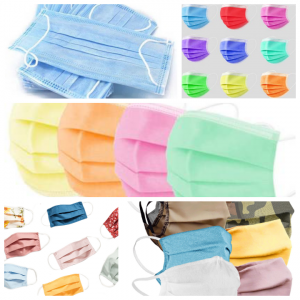
With the enterprise also came differently locally-made and imported brands, at much more affordable prices. Gradually, the once-expensive commodity became relatively affordable, selling for as little as N100, even N50, per unit.
But Prime Business Africa checks reveal that a real surgical mask should actually cost a bit more if it were to prevent COVID-19 infection.
This, perhaps, explains why medical experts warn that not all masks prevent viral infection. They strongly urge the use of standard surgical masks. A CNN medical analyst, Lena Wen on December 20, 2021 said on the network that cloth face masks for instance are not effective against the Omicron variant, adding that “cloth masks are little more than facial decorations.” A study published in August 2021, conducted by a group of researchers from Yale and Stanford universities, found that good surgical masks are 95 per cent effective at filtering out virus particles when compared to cloth mask which was just 37 percent.
No doubt, substandard masks harm NCDC’s efforts to contain the OMICRON variant.
With fake nose masks flooding Nigerian markets, therefore, the very hope of containing the killer virus appears elusive.
Good quality masks, according to the WHO, must be able to block particles of bacteria or virus from passing through. Such, it said must have three-ply layers: the innermost layer, middle and outer layer. The innermost layer absorbs moisture from one’s body, middle layer works as a filter (to prevent bacteria or virus from permeating), while the outer part repels water.
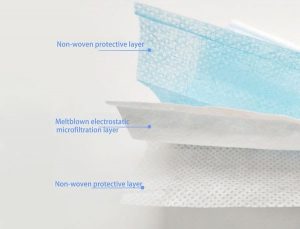
As earlier observed, there are remarkable price differentials in brands sold in markets and streets. The price difference is reflected in product quality. Some of the imported and locally-produced masks are apparently made with substandard materials and sold at relatively cheaper rates for higher turnover and profits. The imported ones are mostly from China.
Prime Business Africa learnt that the material used in producing the middle layer, the meltblown filter, is very expensive, the reason some producers or importers smartly double the outer layer in place of the meltblown. Rather than put the meltblown as the middle layer, they simply double the outer layer which is quite cheaper to make more profits.
To determine the quality of surgical masks, the United States’ National Institute for Occupational Safety and Health (NIOSH), an arm of the US Centres for Disease Control and Prevention that focuses on worker health, requires that every mask must be able to filter 95 per cent of airborne particles for it to qualify for use. Also, the American Society for Testing and Materials (ASTM), tests masks and rates their quality based on levels of fluid resistance, bacterial filtration efficiency, sub-micron particulate filtration, breathing resistance and flammability. The US CDC recommended some testing criteria to identify good surgical masks in the midst of substandard ones, which include: visual, water and flame blowing tests.
The visual test is simply to check whether the mask has three-ply layers.
For the flame blowing test, it involves wearing a mask, lighting a small fire with a lighter and blowing the flame with the mask on, to see if the flame could be extinguished. The idea is that if the melt-blown filter is in place, the flame cannot be put out, no matter how hard or forceful the blowing is. But if it goes off through air blow, it means the mask is fake.
The flame or fire test requires cutting the mask open and using fire to burn the middle filter. The idea is that since the melt blown filter in the middle layer is made of plastics, such as polypropylene or polythene, when fire is applied on it, it would only melt instead of catching fire, while one made of paper easily catches fire and burns.
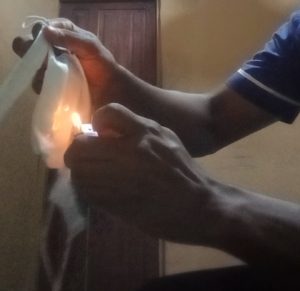
The water test is to check whether water passes through from the layers of the mask easily or it holds it. The idea is that if it prevents the water from passing through, it means the mask is good.
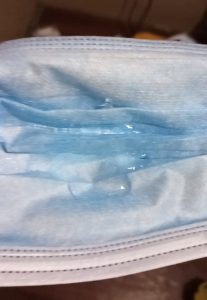
Based on the above methods recommended for checking quality of masks, Prime Business Africa’s investigation team bought some brands of surgical masks and tested them for quality.
During the visual test, it was discovered that all the mask brands had three layers. However, many do not actually have the right components that make up the three layers of a good nose mask. Instead of having the crucial melt blown, many had a similar water repellent non-woven material meant for the outer layer called filter or Meltblown. Some also have very light meltblown material. Although this makes for cheap production and more profit for the manufacturers and retailers, it means that such masks are substandard and could allow particles of virus or bacteria pass through, thereby giving unsuspecting users a false sense of security and exposing them to COVID-19 infections.
During the flame blowing test, Prime Business Africa observed that a few of the more expensive brands proved okay and did not allow air to pass through and blow off the fire from the lighter, even with series of attempts. But virtually all the relatively cheaper nose masks were able to blow off the candle light. This means that the melt blown is either of poor quality or not a melt blown at all.
The difference in the quality of Meltblown, as observed during the experiment, could also be linked to cutting cost of production to make more profits at the expense of unsuspecting users.
The tested nose mask brands include AfriMask (Mikano), O Care, Anyi, Evony, Face Mask, (NDCO), and another brand simply known as “Black Disposable Face Mask.”
Among the brands tested, O Care Nose Mask passed the three tests.
O Care medical/surgical face mask is a brand produced by Transgreen Nigeria Limited, an indigenous company.
Mikano Nig Ltd manufactures two brands of Afrimask. While one brand passed the test, the other brand failed all the tests.
As observed in the course of buying the masks and after the tests, the price differentials are directly proportional to the quality of each of the surgical masks. The nose mask brands that passed the blow test cost as much as N1,500 or N2,000 per pack, against others at N800 and N900 and N1000 per pack. A pack contains 50 pieces of nose masks.
The National Agency for Food and Drug Administration and Control (NAFDAC), which regulates the distribution of surgical masks, have been variously accused of lethargy, if not complicity, in perpetuating a regime of poor quality of nose masks in the marketplace.
A NAFDAC official, who would not want to be named, told Prime Business Africa that the agency could regulate surgical masks used in hospitals and not particularly those in markets. The officer would rather not be quoted but opted to send some documents detailing what role NAFDAC played in monitoring quality of surgical masks used in hospitals and other public places.
Three weeks after, the officer did not send the documents, neither did she respond to subsequent telephone calls.
Another official at NAFDAC, who also pleaded anonymity, said nose masks were categorised as medical device and falls within the regulatory purview of the agency.
She, however, noted that she was not in the position to speak on what the regulator was doing to stem the tide of substandard masks in local markets.
Prime Business Africa interacted with some street hawkers of nose masks, most of who were not even aware of the difference in quality.
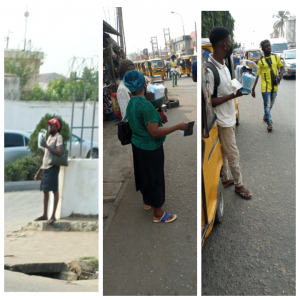
“All I know is that there are different colours and sizes of masks, but I don’t know if any one is fake,” Mrs Sikirat Adedeji, a street hawker of nose mask in Isolo area of Lagos said.
Ezekiel Onu, who sells a particular brand, said he was aware of other brands selling for much higher prices but would only sell the specific brand because that was what many low-income earners who patronise him often request. He said while others were selling the brand for N100 per unit, he sold his for N50, and many often come to buy from him because he sold at cheaper rate.
All in all, it would appear that physical distancing and other anti-COVID-19 preventive measures would only begin to make impacts when NAFDAC and the Standards Organisation of Nigeria (SON) pay honest attention to the quality of nose masks in the markets.
Nigeria is in urgent need for another Dora Akunyili to rescue its 200 million people from the avoidable deaths.


